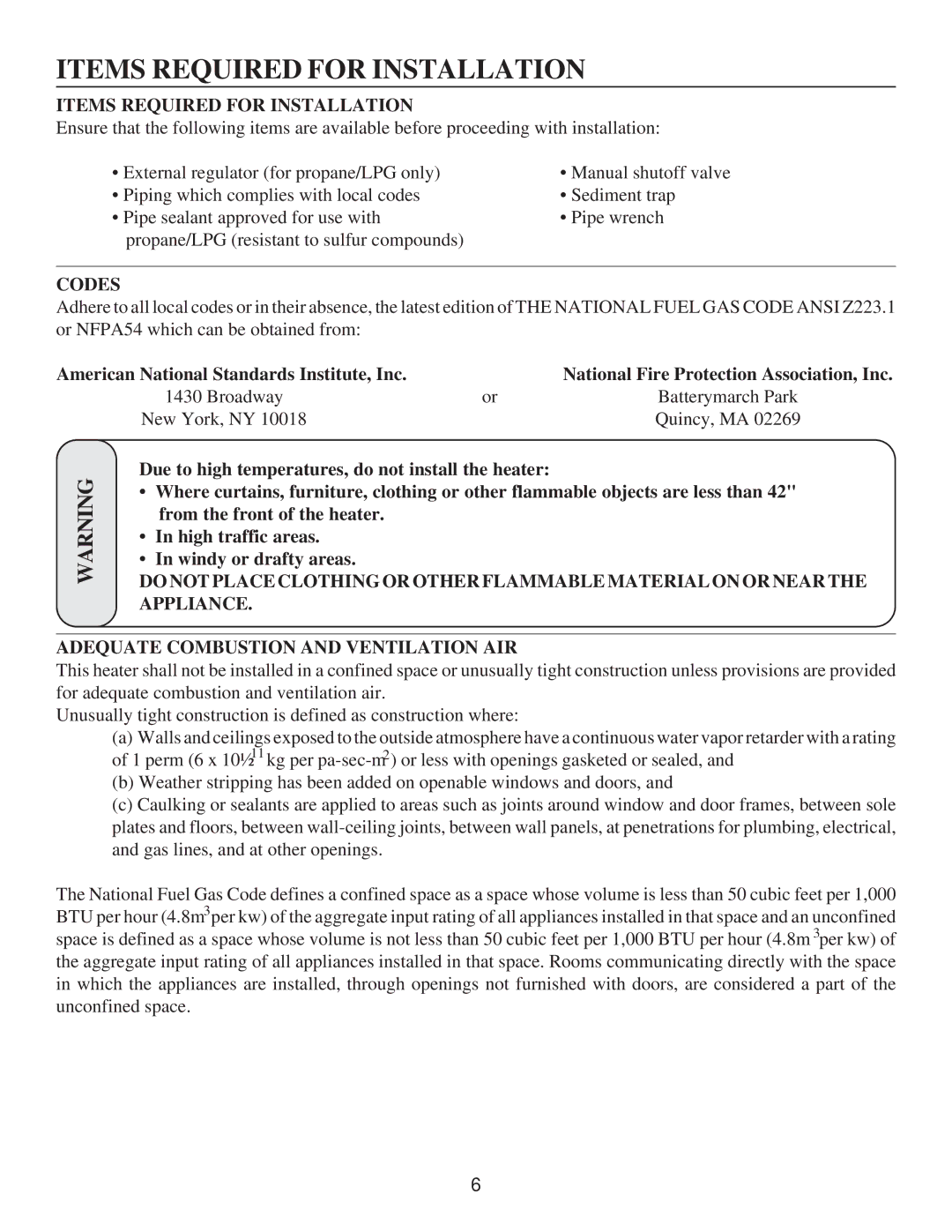
ITEMS REQUIRED FOR INSTALLATION
ITEMS REQUIRED FOR INSTALLATION
Ensure that the following items are available before proceeding with installation:
• External regulator (for propane/LPG only) | • Manual shutoff valve |
• Piping which complies with local codes | • Sediment trap |
• Pipe sealant approved for use with | • Pipe wrench |
propane/LPG (resistant to sulfur compounds) |
|
CODES
Adhere to all local codes or in their absence, the latest edition of THE NATIONAL FUEL GAS CODE ANSI Z223.1 or NFPA54 which can be obtained from:
American National Standards Institute, Inc. |
| National Fire Protection Association, Inc. |
1430 Broadway | or | Batterymarch Park |
New York, NY 10018 |
| Quincy, MA 02269 |
WARNING
Due to high temperatures, do not install the heater:
•Where curtains, furniture, clothing or other flammable objects are less than 42" from the front of the heater.
•In high traffic areas.
•In windy or drafty areas.
DO NOT PLACE CLOTHING OR OTHER FLAMMABLE MATERIAL ON OR NEAR THE APPLIANCE.
ADEQUATE COMBUSTION AND VENTILATION AIR
This heater shall not be installed in a confined space or unusually tight construction unless provisions are provided for adequate combustion and ventilation air.
Unusually tight construction is defined as construction where:
(a)Walls and ceilings exposed to the outside atmosphere have a continuous water vapor retarder with a rating of 1 perm (6 x 10½11 kg per
(b)Weather stripping has been added on openable windows and doors, and
(c)Caulking or sealants are applied to areas such as joints around window and door frames, between sole plates and floors, between
The National Fuel Gas Code defines a confined space as a space whose volume is less than 50 cubic feet per 1,000 BTU per hour (4.8m3per kw) of the aggregate input rating of all appliances installed in that space and an unconfined space is defined as a space whose volume is not less than 50 cubic feet per 1,000 BTU per hour (4.8m 3per kw) of the aggregate input rating of all appliances installed in that space. Rooms communicating directly with the space in which the appliances are installed, through openings not furnished with doors, are considered a part of the unconfined space.
6
